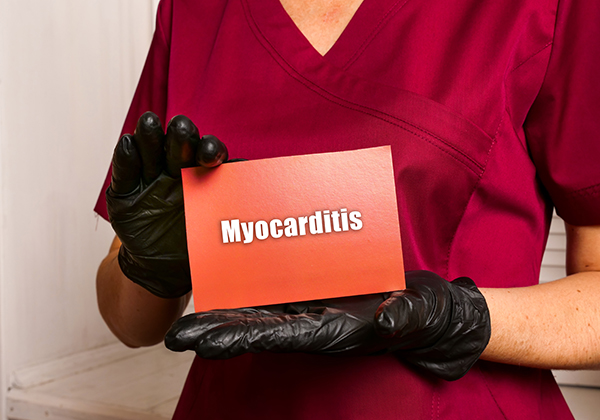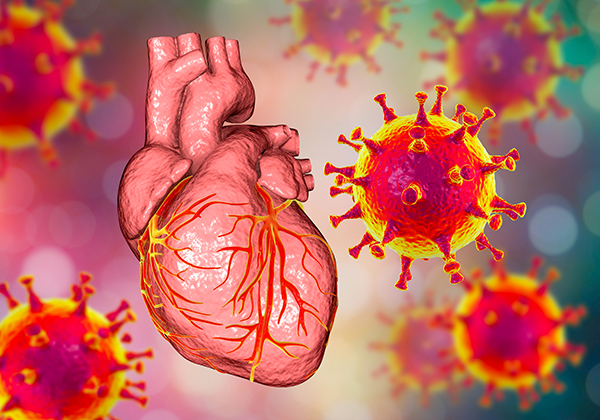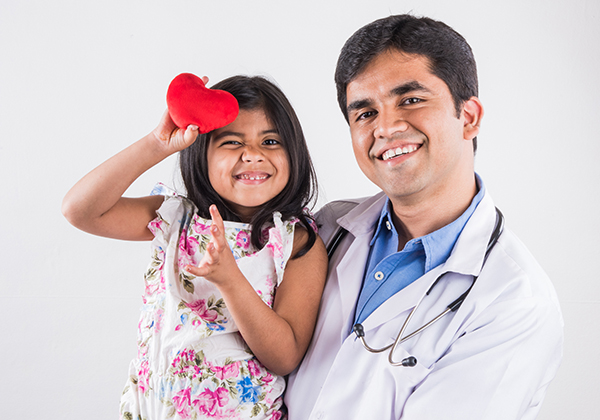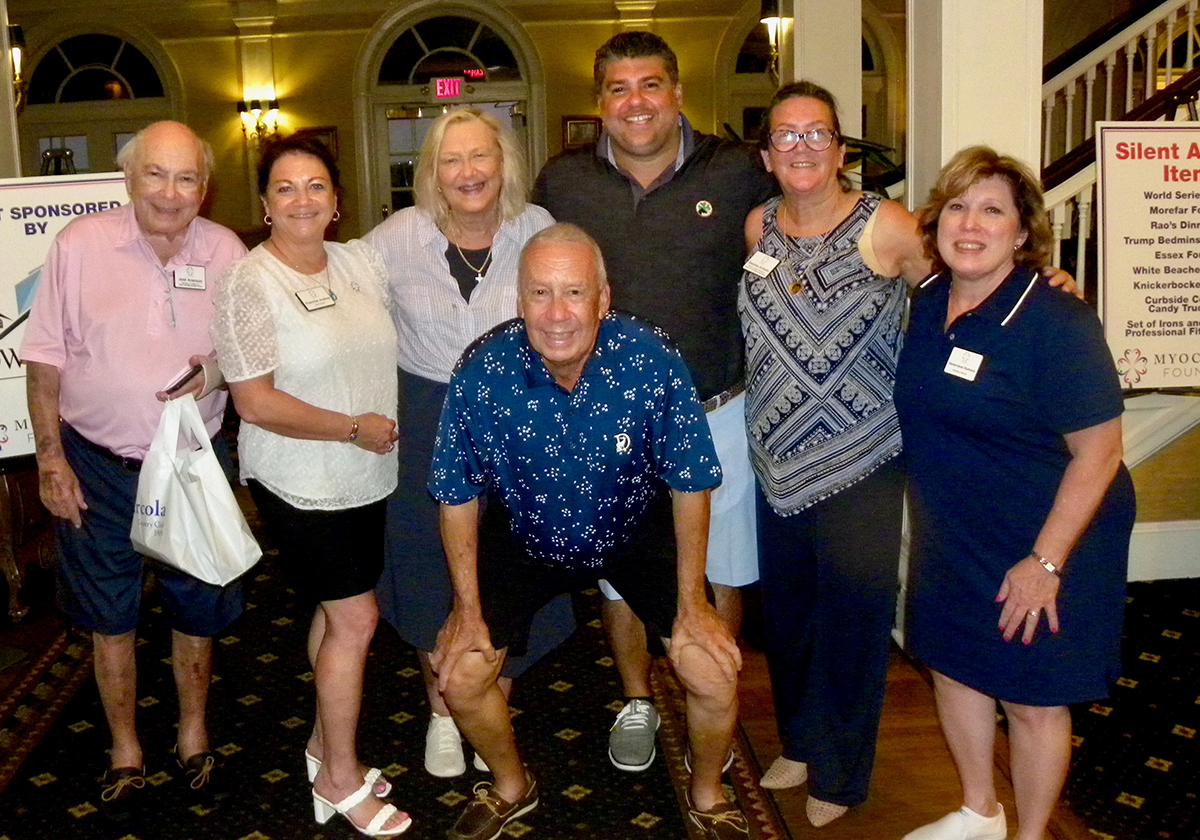(281) 713-2962
800 Rockmead Drive, Suite 155
Kingwood, TX 77339
[email protected]
CardiolRx in Recurrent Pericarditis Following IL-1 Blocker Cessation (MAVERIC)
Status: Recruiting
Location: Cleveland Clinic, Columbia University Medical Center, Massachusetts General Hospital, Mayo Clinic in Rochester, Northwestern University Medicine, University of Vermont Medical Center, University of Virginia
Conditions: Cleveland Clinic, Columbia University Medical Center, Massachusetts General Hospital, Mayo Clinic in Rochester, Northwestern University Medicine, University of Vermont Medical Center, University of Virginia
City/State:
Chicago, Illinois
Boston, Massachusetts
Rochester, Minnesota
Cleveland, Ohio
Charlottesville, Virginia
New York, New York
Burlington, Vermont
Contact Information:
Name: Andrea B Parker, MSc., PhD
Phone Number: +1 289 910 0862
Email: [email protected]
Name: Heather Dalgleish, MSc.
Phone Number:+1 289 910 0384
Email: [email protected]
Double-blind treatment will be initiated 10 – 14 days prior to the last scheduled dose of the IL-1 blocker and continued for 24 weeks.
The objective is to assess whether patients who discontinue therapy with an IL-1 blocker for recurrent pericarditis remain free of pericarditis recurrence while receiving CardiolRx.
After informed consent is obtained, patients will be screened for eligibility. Baseline assessments will be performed during screening within 7 days of Day 1 (Visit 1) and include the following: Physical examination, vital signs, highest NRS pain score within the past 7 days of Day 1, 12-lead ECG; hematology (CBC with differential) and blood chemistry (including complete metabolic panel: sodium, potassium, calcium, glucose, ALT/AST, bilirubin, alkaline phosphatase, blood urea nitrogen (BUN), creatinine/eGFR), C-SSRS and a pregnancy test for women of childbearing potential.
Eligible patients will be randomized on Day 1 to either CardiolRx or matching placebo. Double-blind trial therapy will be initiated in the evening of Day 1, 10 – 14 days prior to the last scheduled dose of the IL-1 blocker and after all baseline assessments are completed. Trial therapy will be administered for 24 weeks.
Final efficacy assessments will take place 24 weeks after starting trial therapy and include a physical exam, vital signs, pain score NRS, a 12-lead ECG, as well as laboratory assessments (including a pregnancy test in women of childbearing potential) and a C-SSRS.
A safety follow-up visit will be scheduled 4 weeks after the last trial therapy administration.
A Study to Learn About The COVID-19 (Study) Vaccine (Called COMIRNATY) in People That Are Less Than 21 Years Old.
Status: Recruiting
Location: Boston Children's Hospital, Children's Healthcare of Atlanta - Egleston, Children's Hospital & Clinics of Minn, Children's Hospital - New Orleans, Children's Hospital Los Angeles, Children's Hospital of Colorado, Children's Hospital of Michigan, Children's Hospital of Philadelphia, Children's Mercy - Kansas City, Children's Minnesota, Children's National Hospital- Washington D.C., Children's of Alabama - Birmingham, Cincinnati Children's Hospital Medical Center, Columbia University Medical Center, Connecticut Children's Medical Center, Duke University Medical Center, FL, Indiana University, Indiana University School of Medicine, Lucile Packard Children's Hospital Stanford, Lurie Children's Hospital, Medical University of South Carolina (Musc) - Childrens Hospital, Nemours Children's Hospital Delaware, Northwell Health- Cohen Children's Medical Center, Phoenix Children's Hospital, Portland, Primary Children's - Salt Lake City, Seattle Children's Hospital, Seattle Children's Hospital & Research Institute, Texas Children's Hospital, The Hospital for Sick Children Toronto, UPMC Children's Hospital of Pittsburgh, University of Michigan Hospital-Mott Children's Hospital, Valley Children's Hospital, Washington University School of Medicine
Conditions: Boston Children's Hospital, Children's Healthcare of Atlanta - Egleston, Children's Hospital & Clinics of Minn, Children's Hospital - New Orleans, Children's Hospital Los Angeles, Children's Hospital of Colorado, Children's Hospital of Michigan, Children's Hospital of Philadelphia, Children's Mercy - Kansas City, Children's Minnesota, Children's National Hospital- Washington D.C., Children's of Alabama - Birmingham, Cincinnati Children's Hospital Medical Center, Columbia University Medical Center, Connecticut Children's Medical Center, Duke University Medical Center, FL, Indiana University, Indiana University School of Medicine, Lucile Packard Children's Hospital Stanford, Lurie Children's Hospital, Medical University of South Carolina (Musc) - Childrens Hospital, Nemours Children's Hospital Delaware, Northwell Health- Cohen Children's Medical Center, Phoenix Children's Hospital, Portland, Primary Children's - Salt Lake City, Seattle Children's Hospital, Seattle Children's Hospital & Research Institute, Texas Children's Hospital, The Hospital for Sick Children Toronto, UPMC Children's Hospital of Pittsburgh, University of Michigan Hospital-Mott Children's Hospital, Valley Children's Hospital, Washington University School of Medicine
City/State:
Birmingham, Alabama
Phoenix, Arizona
Los Angeles, California
Madera, California
Palo Alto, California
Aurora, Colorado
Harford, Connecticut
Wilmington, Delaware
Washington, DC
Hollywood, Florida
Atlanta, Georgia
Chicago, Illinois
Indianapolis, Indiana
New Orleans, Louisiana
Boston, Massachusetts
Ann Arbor, Michigan
Detroit, Michigan
Minneapolis, Minnesota
Kansas City, Missouri
Saint Louis, Missouri
New Hyde Park, New York
New York, New York
Durham, North Carolina
Cincinatti, Ohio
Portland, Oregon
Philadelphia, Pennsylvania
Pittsburgh, Pennsylvania
Charleston, South Carolina
Houston, Texas
Salt Lake City, Utah
Seattle, Washington
Toronto, Ontario
Contact Information:
Pfizer CT.gov Call Center
(800) 718-1021
email: [email protected]
The purpose of this clinical trial is to learn about the safety and effects of the study vaccine (called COMIRNATY) for the potential prevention of COVID-19. This study is seeking participants who:
-
-
- Are age <21 years.
- Have presentation to participating medical center with evaluation in Emergency Room and/or hospitalization.
- Received either the 1st, 2nd, 3rd or booster dose(s) of COMIRNATY within 7 days of symptom onset.
- Meet criteria of Centers for Disease Control and Prevention case definition of probable or confirmed myocarditis/pericarditis
- Are capable of giving signed informed consent/assent (by parents/legal guardians of minors and/or patients), which includes compliance with the requirements and restrictions listed in the Informed Consent/Assent Document and in this protocol OR meets criteria for waiver of consent.
-
This study will examine the potential long-term effects associated with myocarditis/pericarditis following vaccination with COMIRNATY. The association of myocarditis/pericarditis in participants who received the study vaccine (COMIRNATY) compared with those associated with COVID-19 will also be examined. This will help us determine if COMIRNATY is safe and effective, and if there is a myocarditis/pericarditis association that should be noted. Participants will take part in this study for up to 5 years. During this time, they will receive complete cardiac imaging tests, and have follow up visits per guidance stated in the study protocol.
Detailed Description:
This is a low-interventional cohort study to determine cardiac and non-cardiac long-term outcomes of persons <21 years of age with myocarditis/pericarditis after the administration of COMIRNATY, compared with similarly aged persons with myocarditis/pericarditis associated with COVID-19, including MIS-C.
To be classified as having COMIRNATY-associated myocarditis/pericarditis, a person must 1) meet the CDC case definition for probable or confirmed myocarditis/pericarditis, 2) have received any dose of COMIRNATY ≤ 7 days of symptom onset, and 3) have no other plausible alternative etiology at the time of enrollment.
To be classified as having myocarditis/pericarditis associated with COVID-19, a person must have 1) either acute severe COVID-19 infection or MIS-C, as defined by the CDC, 2) findings of probable or confirmed myocarditis in the CDC definition, 3) no other plausible alternative etiology. A description of the three cohorts is as follows:
Cohort 1: Prospectively ascertained cases of probable or confirmed myocarditis/pericarditis associated with COMIRNATY , i.e., participants enrolled under protocol during hospitalization or </= 2 weeks of hospital discharge.
Cohort 2: Retrospectively ascertained cases of probable or confirmed myocarditis/pericarditis associated with COMIRNATY , i.e., participants enrolled > 2 weeks after hospital discharge. Participants can be retrospectively ascertained and enrolled at any time from their COMIRNATY-associated myocarditis/pericarditis.
Cohort 3: Comparator cohort of COVID-19- related myocarditis/pericarditis , including MIS-C, both retrospectively and prospectively ascertained, and enrolled at any time from their COVID-19 or MIS-C associated myocarditis/pericarditis diagnosis.
Participants in all cohorts will be those who present to participating medical centers for care. This study is a collaboration between the National Heart, Lung, and Blood Institute (NHLBI)’s Pediatric Heart Network (PHN) and Pfizer.
Enrollment will include approximately 300 prospectively and retrospectively ascertained cases of children, adolescents, and young adults <21 years of age who receive care for myocarditis/pericarditis associated with COMIRNATY (Cohort 1 and 2); and approximately 100 persons <21 years of age with COVID -19-associated myocarditis/pericarditis, including MIS-C (Cohort 3).
Read moreAbatacept in Immune Checkpoint Inhibitor Myocarditis
Status: Recruiting
Location: "Beth Israel Deaconess Medical Center ", Allegheny-Singer Research Institution, Aurora St. Luke's Medical Center, Boston Medical Center, Brigham and Women's Hospital, Cedars-Sinai Medical Center, Cleveland Clinic, Columbia University Medical Center, Franciscan Health, Johns Hopkins University, Lehigh Valley Health Network, Los Angeles, MD Anderson Cancer Center, Maine Health, Massachusetts General Hospital, Mayo Clinic, Mayo Clinic in Rochester, MedStar Health Research Institute - Georgetown University, Memorial Sloan Kettering Cancer Center, Moffitt Cancer Center, Ontario, Robert Wood Johnson University Hospital, University of British Columbia, University of California Los Angeles, University of Chicago, University of Kansas Medical Center, University of Kentucky, University of Michigan, University of North Carolina Chapel Hill, University of Pennsylvania, University of Texas Southwestern, University of Utah, University of West Virginia
Conditions: "Beth Israel Deaconess Medical Center ", Allegheny-Singer Research Institution, Aurora St. Luke's Medical Center, Boston Medical Center, Brigham and Women's Hospital, Cedars-Sinai Medical Center, Cleveland Clinic, Columbia University Medical Center, Franciscan Health, Johns Hopkins University, Lehigh Valley Health Network, Los Angeles, MD Anderson Cancer Center, Maine Health, Massachusetts General Hospital, Mayo Clinic, Mayo Clinic in Rochester, MedStar Health Research Institute - Georgetown University, Memorial Sloan Kettering Cancer Center, Moffitt Cancer Center, Ontario, Robert Wood Johnson University Hospital, University of British Columbia, University of California Los Angeles, University of Chicago, University of Kansas Medical Center, University of Kentucky, University of Michigan, University of North Carolina Chapel Hill, University of Pennsylvania, University of Texas Southwestern, University of Utah, University of West Virginia
City/State:
Los Angeles, California
Kansas City, Kansas
Lexington, Kentucky
Boston, Massachusetts
Ann Arbor, Michigan
New York, New York
Chapel Hill, North Carolina
Bethlehem, Pennsylvania
Dallas, Texas
Houston, Texas
Salt Lake City, Utah
Washington D.C.
Tampa, Florida
Chicago, Illinois
Indianapolis, Indiana
Portland, Maine
Baltimore, Maryland
Rochester, Minnesota
New Brunswick, New Jersey
Cleveland, Ohio
Philadelphia, Pennsylvania
Pittsburgh, Pennsylvania
Morgantown, West Virginia
Milwaukee, Wisconsin
Vancouver, British Columbia, Canada
Hamilton, Ontario, Canada
Contact Information:
Hannah K Gilman, MS
6177261019
[email protected]
This investigator-initiated randomized trial is being conducted to test whether abatacept, as compared to placebo, is associated with a reduction in MACE among participants who develop myocarditis after treatment with an ICI. Immune checkpoint inhibitors leverage the immune system to treat a wide variety of cancers. Myocarditis is an uncommon immune related adverse event (irAE) secondary to treatment with an ICI. The guideline recommended treatment for ICI myocarditis is cessation of the ICI and administration of corticosteroids. However, despite administration of corticosteroids, the rate of MACE with ICI myocarditis is high. Data from multiple independent international cohorts have shown that the rate of MACE with ICI myocarditis despite administration of corticosteroids ranges from 25-50%.For comparison, the rate of MACE with myocarditis unrelated to an ICI is <5%.
Abatacept is a selective co-stimulation modulator that inhibits T cell (T lymphocyte) activation by binding to CD80 and CD86, thereby blocking its interaction with CD28. This interaction provides a costimulatory signal necessary for full activation of T lymphocytes. In animal studies of ICI myocarditis, the administration of abatacept led to a reduction in cardiac immune activation and an increase in survival. In retrospective unpublished clinical data, the administration of abatacept to participants with ICI myocarditis on corticosteroids was associated with a reduction in risk of MACE. There are no prospective studies testing whether abatacept is effective among participants with ICI myocarditis. Therefore, the primary aim of this trial is to test in a randomized double-blind placebo-controlled study whether abatacept, administered concurrently with corticosteroids, is associated with a reduction in MACE among participants with recently diagnosed ICI myocarditis






























